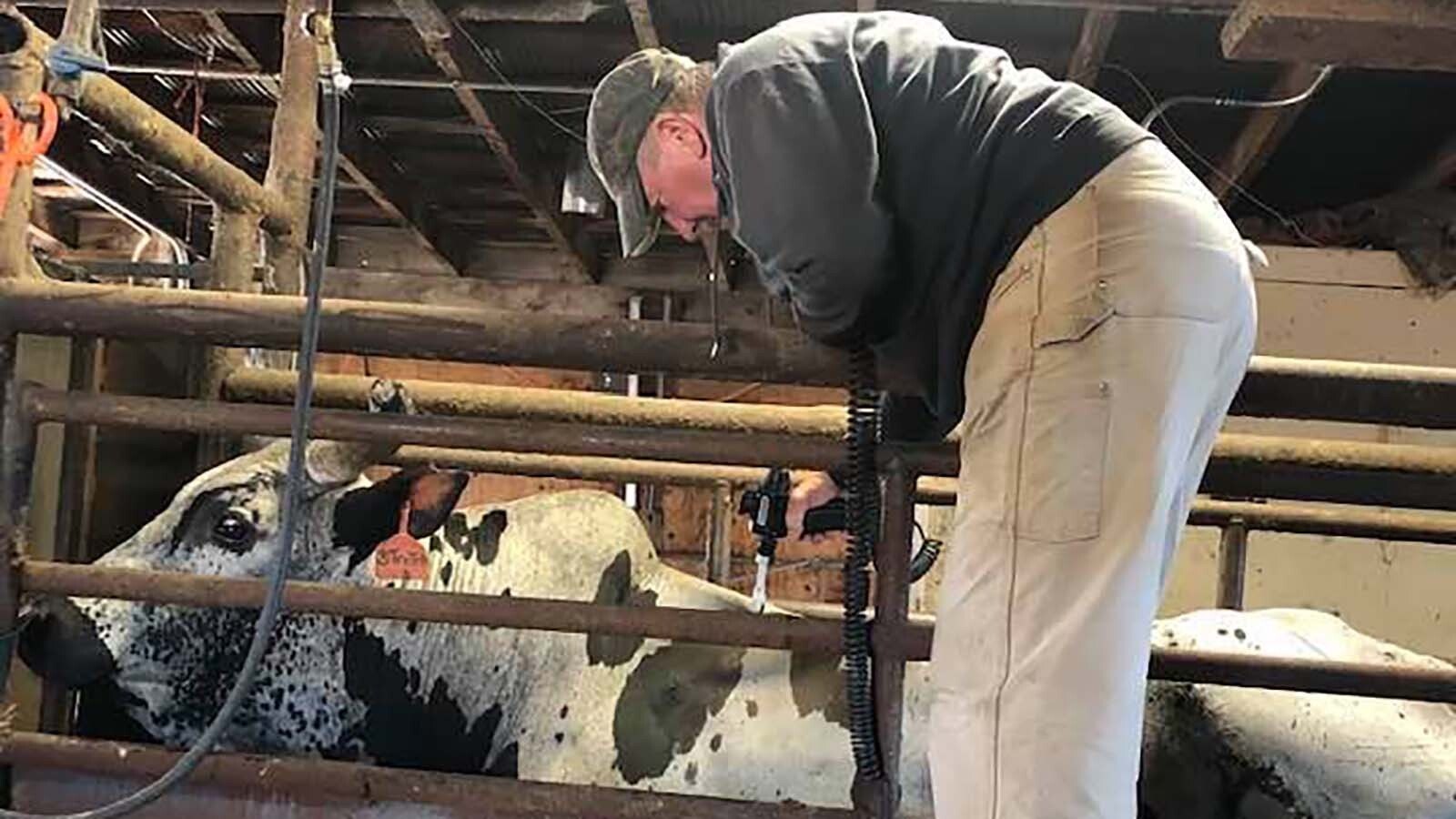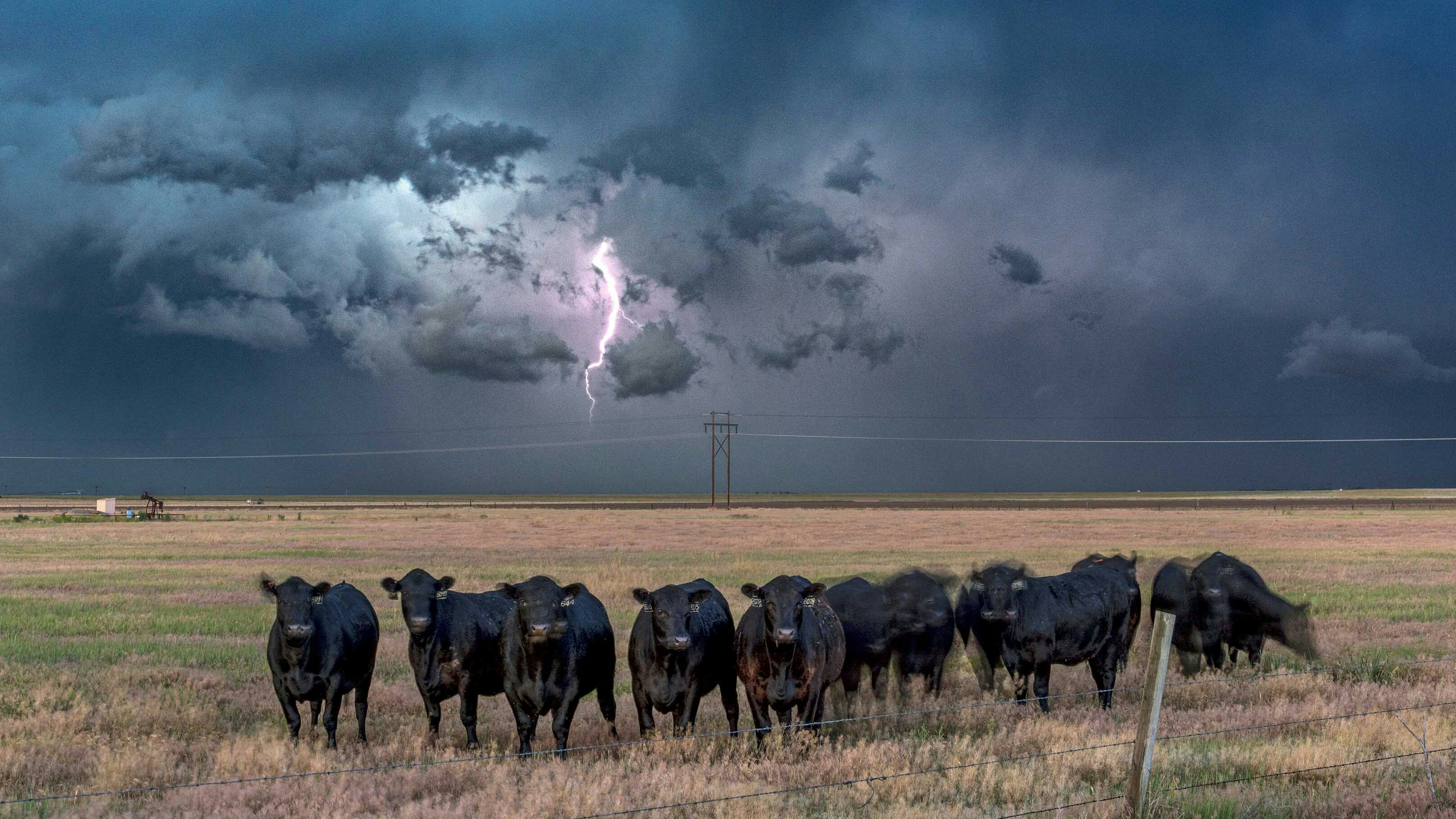A Wyoming rancher suing the federal government because of race-based exclusions in a coronavirus relief program may be helped by a recent Tennessee ruling that prioritizing relief based on race and sex is unconstitutional, according to a former director of the U.S. Bureau of Land Management.
William Perry Pendley, a Wyoming attorney who served as acting director of the BLM from 2019 to 2020, said even though the lawsuit filed in Wyoming addresses agricultural loan forgiveness programs and the Tennessee case addressed COVID relief funds, the two cases share similar roots.
“This will help the Wyoming rancher,” Pendley told Cowboy State Daily. “Though the ruling of the (U.S.) Sixth Circuit (Court of Appeals) is not precedent that the Wyoming federal district court must follow, it is persuasive, especially given that it is a federal court of appeals, that the Wyoming court is likely to follow and cite as authority.”
Leisl Carpenter, a 29-year-old rancher in Laramie County, is suing the U.S. Department of Agriculture over a loan forgiveness program under the American Rescue Plan Act pandemic relief funding that forbids her from applying because she is white.
“It’s brazen discrimination,” said William Trachman, associate general counsel for the Mountain States Legal Foundation who filed the lawsuit in U.S. District Court in May.
The American Rescue plan, which was signed into law by President Biden in March, offers $4 billion in loan forgiveness for “socially disadvantaged” ranchers and farmers throughout the United States. The U.S. Department of Agriculture is interpreting the phrase to mean the only people who can apply for aid must be “Black, American Indian/Alaskan Native, Hispanic, or Asian, or Hawaiian/Pacific Islander.”
Such discrimination by the federal government is constitutionally forbidden, the lawsuit said.
“(The federal government’s) use of race discrimination as a tool to end ‘systemic racism’ is patently unconstitutional and should be enjoined by the court,” the lawsuit said.
The lawsuit said the loan forgiveness program does not necessarily target farmers or ranchers who suffered economically because of the coronavirus pandemic.
“Under the relevant provisions, it forgives the loans of farmers or ranchers whose race matches the race of a group whose members have suffered discrimination, per the (USDA),” it said.
The lawsuit asks the court to find the program unconstitutional because of its limits on who can apply for loan forgiveness.
Trachman said he is being contacted by other farmers and ranchers who were prevented from applying for the loan forgiveness program.
Trachman said he is also encouraged by the ruling of the federal appeals court in Tennessee, which issued an injunction against the U.S. Small Business Administration to keep it from prioritizing COVID relief funds based on the restaurant owner’s race and sex.
The court’s decision stemmed from a lawsuit filed by Antonia Vitolo, owner of Jake’s Bar and Grill in Harriman, Tennessee.
Vitolo applied to receive federal relief from the Restaurant Revitalization Fund that was created as part of the ARPA. He was told restaurant owners who were women or minorities would be prioritized to receive the federal funds.
The appeals court found such a prioritization system was unconstitutional and barred the Small Business Administration from applying it in the future.
Pendley, who is not involved in Carpenter’s lawsuit, said he hopes the ranchers and other people filing such lawsuits do not stop the legal action if the U.S. Department of Justice agrees not to enforce the rules in their cases.
“As (appeals court) Judge (Amul) Thapar pointed out, these rules have been on the books for decades and continue to be enforced,” he said. “That DOJ says it will not apply them in a particular case does not mean the constitutional injury goes away.”
The government has 60 days to respond to Carpenter’s Complaint for Declaratory and Injunctive Relief.





